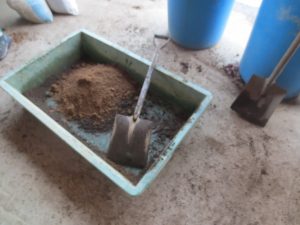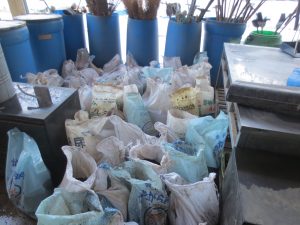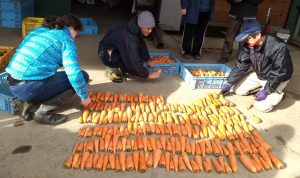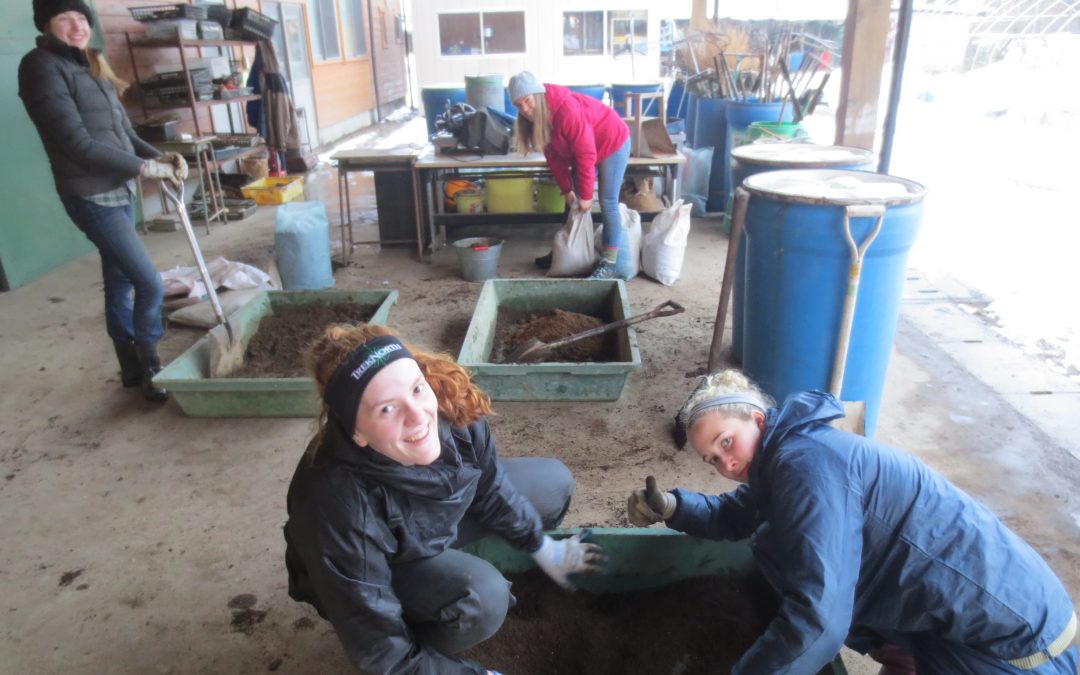
During foodlife work here at ARI, I have begun to realize some of the most profound differences between working on an organic farm and my family’s commercial farm. The amount of care, detail, and attention paid to the soil is immense here at ARI. Consider the toil involved in the creation of bokashi. Think about the transformation of rice husk into biochar, the soil being sifted, leaves taking years to decompose. That level of detail isn’t possible when you’re managing tens of different fields spread over a forty-five mile radius, with thousands of acres of land being planted and harvested every year. My family of four farms around 475 hectares, while somewhere between fifteen and forty workers, staff, participants, volunteers (depending on the season), work on 6 hectares at ARI. This connection with the land on organic farms allows for a much deeper understanding of the cycle of nature, quality of soil, and care for the natural environment.

This level of alienation, though distinct, is still far less than consumers who have never worked on a farm. Every farmer who owns his land has a desire to keep the soil healthy. The soil is a farmer’s livelihood, his inheritance to future generations, and most likely handed down by forebears. Regardless of the size, any farm that’s being worked by the owner will care better for the long term health of the soil. In many cases, it is outside influences that behold farmers to their power, committing them to certain practices or risk of being outcompeted by their neighbors. GMO’s ensure that seeds need to be bought every year, companies control prices and availability of fertilizer, pesticide, and herbicide. Equipment, storage, and transportation are controlled by a small number of corporations. Large quantities of land often means large input cost that increases significantly by small price shifts per acre. This forces commercial farmers to be beholden to all these inputs in order to stay solvent. Activities such as cover crops don’t eliminate the problem of weeds or pests, only reduce them. The organic labor heavy work done on organic farms allows them to be free of these forces, and thus align themselves with the natural cycle.

After reading about Japan’s environmental history in Bad Water and Japan on Nature’s Edge, it is always the locals who understand the consequences of industrial pollution, feel the side effects, and try to stop it. The producers bear the burden of environmental hardship that the consumers are disconnected from. If environmental policy truly wanted to help the land, it would focus on empowering the farmers who own it. Allowing farmers to have influence in the research, development, and implementation of solutions and technological advances can reduce environmental impact far more than solutions from labs or meetings in Washington.

